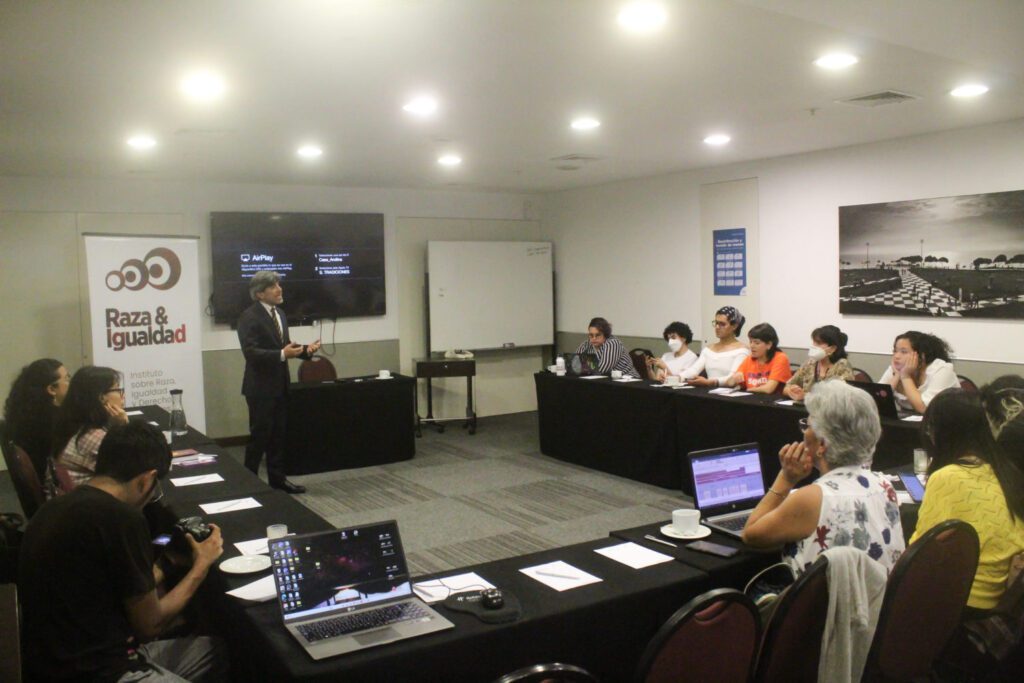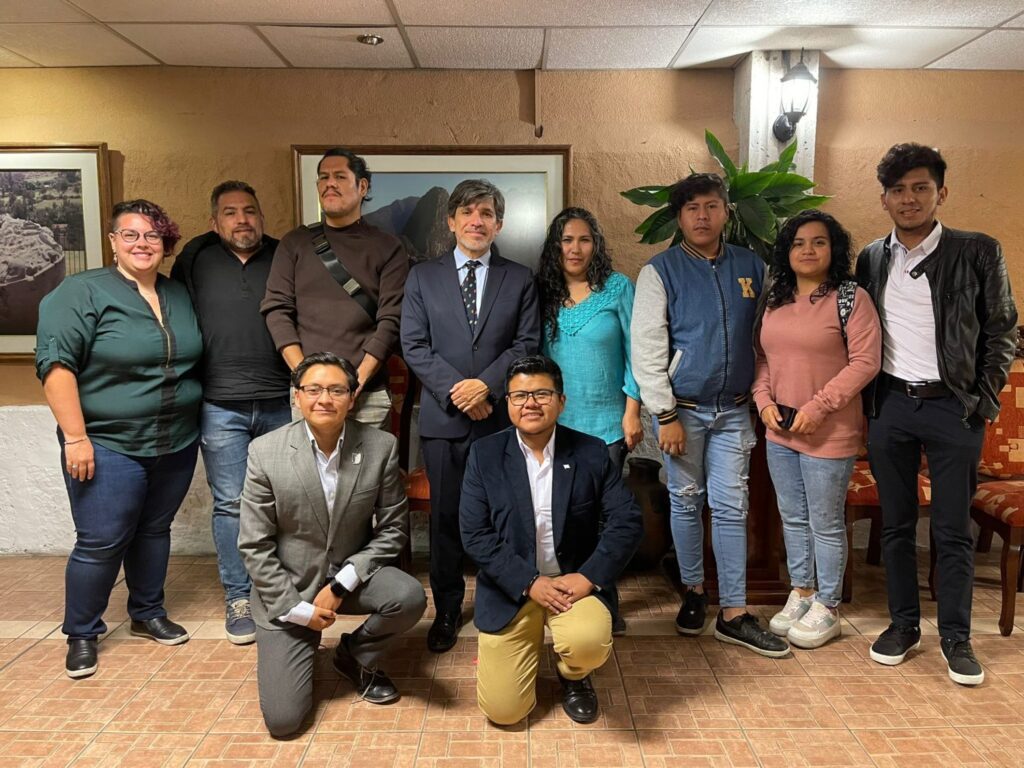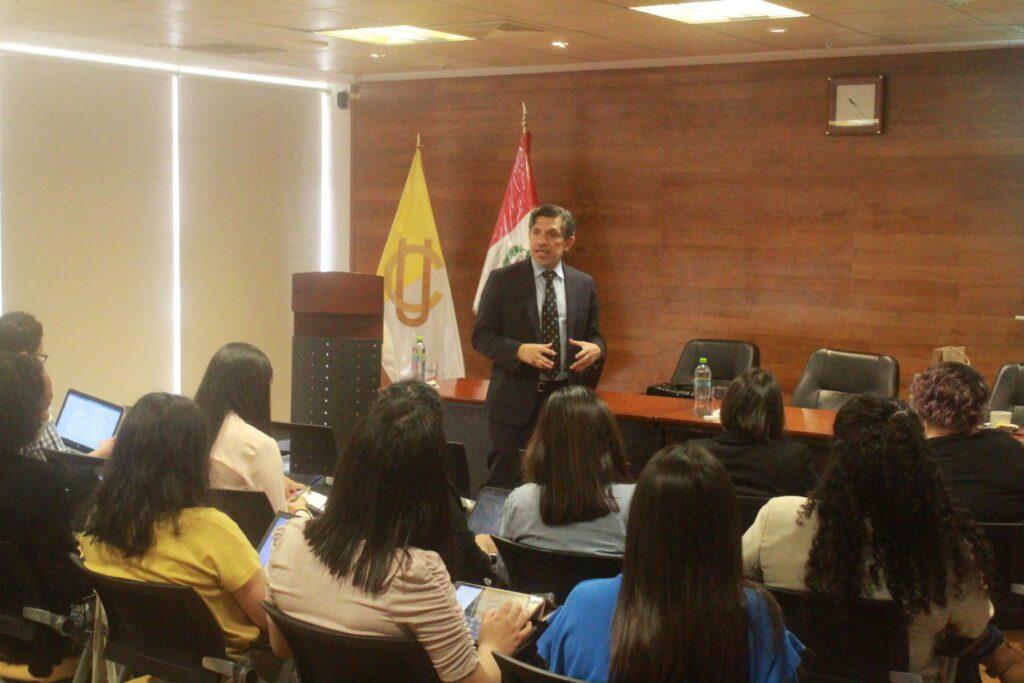Victor Madrigal meets with more than 30 LGBTI+ people from Mexico with the support of Race and Equality
In Mexico, the United Nations Independent Expert on sexual orientation and gender identity, Víctor Madrigal-Borloz, met with local authorities, leaders, and LGBTI+ organizations of two Mexican states to promote his mandate.
From July 17th to the 22nd, the United Nations Independent Expert on Sexual Orientation and Gender Identity (UNIESOGI), Víctor Madrigal-Borloz, held a promotional visit to two Mexican states –Oaxaca and Mexico City—, which were conducted in alliance with the International Institute on Race, Equality and Human Rights (Race and Equality), represented by the Senior LGBTI Program Officer, Zuleika Rivera. Likewise, the United Nations Office of High Commissioner for Human Rights (OHCHR) was present, represented by Niza Castañeda, Human Rights Officer.
During his visit, he met with more than 30 LGBTI+ people of different organizations, leaders of civil society, and local authorities dedicated to the protection and promotion of LGBTI+ rights, with the goal of learning more about the situation of LGBTI+ people in Mexico and to provide information to participants on the functions of the mandate and the various forms of participation for civil society. Additionally, the Independent Expert and Race and Equality participated in the 6th Conference of LGBTI Political Leaders of the Americas and the Caribbean, where Madrigal-Borloz was invited to participate as a panelist.
Dialogue with the muxhe community
On July 18th, the “Dialogue of authorities and the muxhe/trans community of the region of Istmo with the Independent Expert” was held in Istmo de Tehuantepec, Oaxaca, Mexico, which was convened by the Technical Institute of the Isthmus, the Proyecto Transformándome, Mexfam and other civil society organizations. “In Oaxaca there exists a narrative and language of inclusion and respect for the communities of the Isthmus, lessons that are beneficial for the world. Indigenous peoples, African people, and Asian civilizations have known sexual and gender diversity as phenomenon that are part of the richness of society,” expressed the Independent Expert at the meeting.
The dialogue was attended by authorities such as Mariano Rosado López, Secretary of the Municipality of Juchitán de Zaragoza, and Juan José Rementeria Orozco, Director of the Technical Institute of the Isthmus (TecNM), who expressed his wishes for an inclusive education for the muxhe community and LGBTI+ people. Also in attendance was the first muxhe municipal representative, Carisia Cabrera, who described the challenge of reaching the governorship and the constant struggle to be representative, as sexism and racism have always existed.
The meeting was also attended by leaders, local groups, and secular actors, and had the purpose of establishing a link with the muxhe community and other sexual diverse communities, allowing listening and articulation of needs in health, security, justice, work, and social inclusion. In this regard, Jenni Natalia Santiago, from Ellas Deciden, a network of lesbian, bisexual and gender-diverse women, pointed out that colonial processes keep ancestral gender identities silent and that it is necessary for the Mexican State to recognize their existence and the barriers they face in accessing opportunities.

United Nations Independent Expert on sexual orientation and gender identity, Víctor Madrigal-Borloz, at the “Dialogue with authorities and the muxhe/trans community of the region of Itsmo” at the Technical Institute of the Isthmus of Mexico.
Meetings with civil society
Over two days, the Independent Expert on SOGI, Victor Madrigal-Borloz, met with Mexican civil society organizations in three thematic roundtables, where they addressed issues such as migration, human mobility and its impact on LGBTI+ persons, disappearances, hate speech and hate crimes, and the rights of LGBTI+ persons deprived of liberty, LGBTI+ indigenous and Afro-Mexican peoples, and trans youth.
Mexico has one of the borders with the highest migratory flows and, in the last year, the number of LGBTI+ people in migration has increased, including youth and adolescents. In addition, extreme violence at home and on the streets and lack of opportunities due to sexual orientation and gender identity are the main causes of expulsion from their places of origin. In the country, there is no specific migration policy for LGBTI+ people, neither in the national migration law nor in the federal asylum law, so there are no mechanisms of care; in addition, hypersexualization and racial profiling is very common.
On the other hand, civil organizations have a constant struggle for truth, justice, reparation, and for the memory of the victims of disappearance and hate crimes. The country has not been able to build an official registry of LGBTI+ persons and the Missing Persons Search Commissions and Prosecutor’s Offices in Mexico do not recognize diverse families’ ability to initiate the search processes for LGBTI+ missing persons. In addition, there is a lack of training in forensic anthropology to correctly treat the bodies of trans persons.
Likewise, it is necessary to recognize and respect the rights of LGBTI+ persons in detention centers in Mexico. LGBTI+ people deprived of their liberty are often victims of systematic violations of their rights and cruel and inhumane acts, with trans people facing these acts with greater severity. Likewise, hate speech and the presumption of criminality reinforce discrimination against indigenous populations, LGBTI+ Afro-Mexicans, and trans youth and children.

Víctor Madrigal-Borloz in thematic meetings with Mexican LGBTI+ civil society organizations.
LGBTI+ Political Leaders
The Independent Expert and Race and Equality participated in the 6th Conference of LGBTI+ Political Leaders of the Americas and the Caribbean, the largest event that brings together openly LGBTI+ leaders, public servants, and allies, where Víctor Madrigal-Borloz was invited to participate in the panel “Betting on democracies, bursting with color”. During his portion of the panel, the Independent Expert reflected on how the creation of the mandate is a sign of the fight for political spaces, 30 years ago it was unthinkable that sexual orientation and gender identity would be discussed at the United Nations.
The main objective of the 6th Conference, in which around 500 people participated, was to provide a space for dialogue, capacity building and networking and exchange of experiences in the field of citizen and political participation to move towards equality. Something important to highlight is that, during the meeting, the first LGBTI+ caucus in Brazil was created to combat the systematic attack on LGBTI+ rights promoted by the extreme right. This delegation is composed of more than 23 political authorities, members of the government and social organizations, among them federal deputy Erika Hilton, Duda Salabert and state deputy Linda Brasil.
Part of the Institute on Race, Equality and Human Rights work is to support the promotional visits of the mandates of the United Nations and the Inter-American Court of Human Rights (IACHR) for the rights of LGBTI+ people. In this regard, Race and Equality reaffirms its commitment to accompany their efforts to ensure the equality and dignity of LGBTI+ people.

Victor Madrigal-Borloz participating in the panel “Betting on democracies, bursting with color”. In the second photo: Miguel Ángel Alanis (Race and Equality), Niza Castañeda (OHCHR), Alex Leal (UNIESOGI), Zuleika Rivera (Race and Equality) at the 6th Conference of LGBTI+ Political Leaders of the Americas and the Caribbean.





